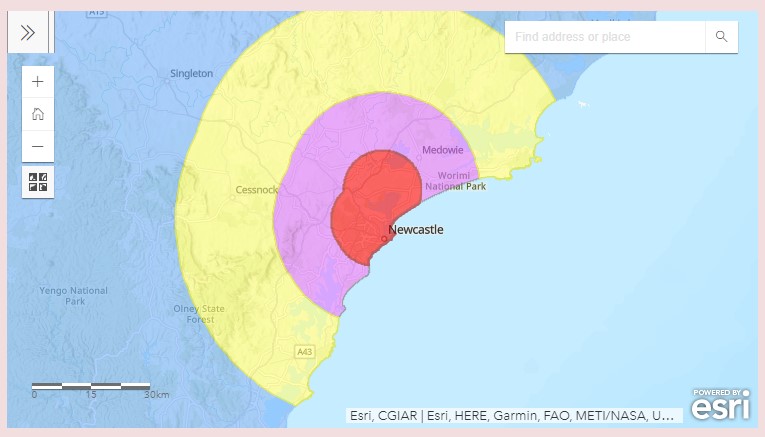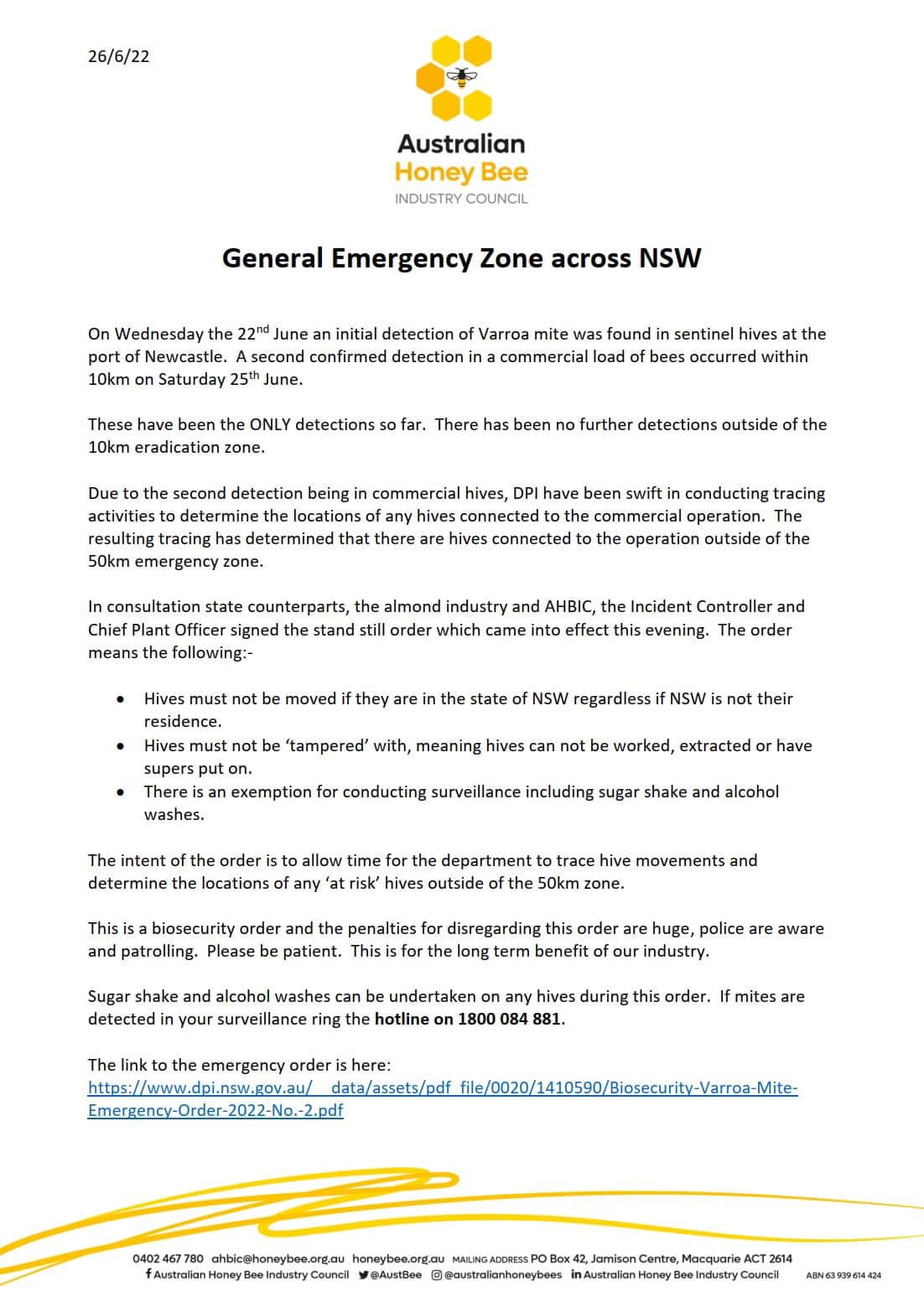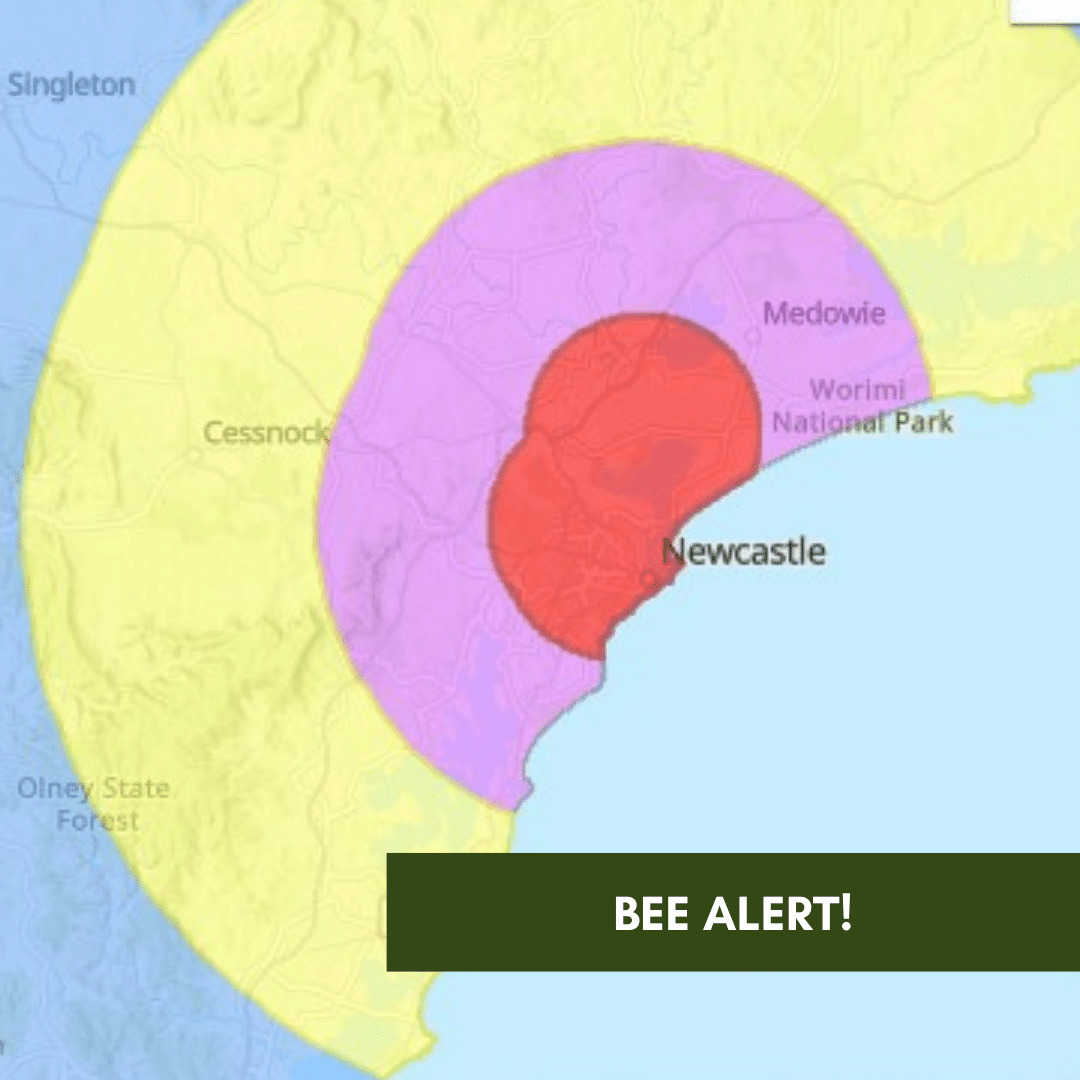
NSW Department of Primary Industries has issued the following emergency alert:
“ALERT
Our early warning system has detected varroa mite, which was confirmed as Varroa destructor, in biosecurity surveillance hives at the Port of Newcastle.
NSW DPI is working to protect the NSW honey industry by ensuring we eradicate the parasite.
Varroa mite biosecurity zone and what to do:
The eradication plan is supported by a varroa mite biosecurity zone covering an area within a 50 km radius of the Port of Newcastle infestation.
Within this biosecurity zone, no hive or bees can be moved, no honey or comb can be removed from hives, and beekeepers must let NSW DPI know the location of all hives by:
- completing the Report a biosecurity concern form
- emailing hive.location@emergency.dpi.nsw.gov.au, or
- calling the Exotic Plant Pest Hotline, 1800 084 881 (9 am to 5 pm, 7 days a week).”
European Bees (Apis mellifera) are a pest of the bushland – colonising nest boxes & tree hollows, increasing competition with native fauna and native bee hives.
We are urging Landholders, Landcarers and bushwalkers to report any feral honey bee populations within the eradication zones, to help protect our honey industry & food security throughout Australia.
For any feral beehives found on NPWS Land, please report to DPI & send a GPS point, photo and habitat description (ie. Tree species, hollow type) to: npws.huntercentralcoastbranch@environment.nsw.gov.au
For queries and assistance in identification of bees, please contact Scott Whitaker with photos & GPS points at;
info@hinterlandbees.com
T: 1300 278 448
M: 0404 100 358


